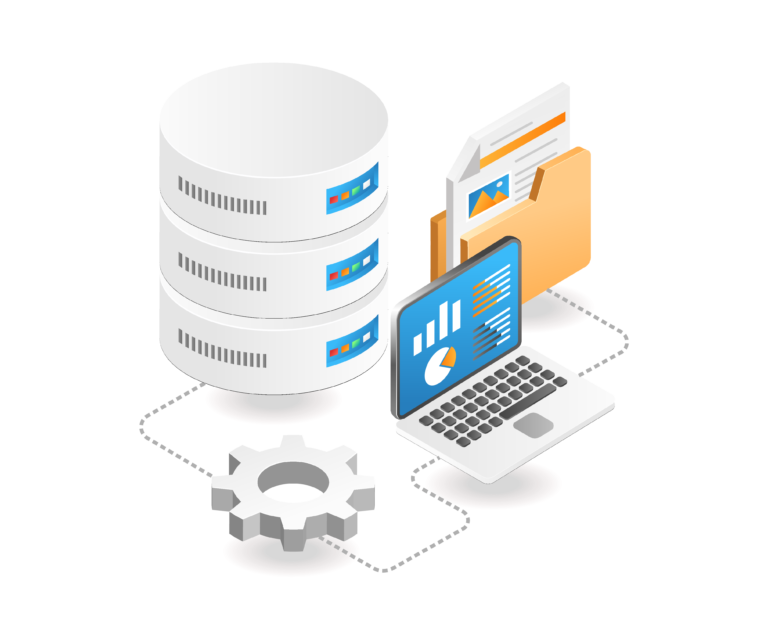Relational databases powering small businesses

Relational databases powering small businesses
Introduction
Relational databases have been a cornerstone of data management for decades, facilitating the efficient storage and retrieval of structured information. In today’s data-driven world, relational databases play a vital role, enabling businesses to store, organize, and analyze their data effectively.
Relational Databases Today
Relational databases are widely used across industries due to their ability to organize data into tables with well-defined relationships. These databases ensure data integrity and consistency, making them suitable for mission-critical applications.
Here are some of the critical uses of relational databases today:
1. Enterprise Applications
Relational databases serve as the backbone for enterprise-level applications, such as customer relationship management (CRM) systems, human resource management systems (HRMS), and enterprise resource planning (ERP) systems.
E-Commerce and Online Transactions
Online retailers and businesses that deal with e-commerce rely heavily on relational databases to manage product catalogs, user profiles, and transactional data.
3. Financial Services
In the financial sector, relational databases handle vast amounts of transactional data, ensuring security, reliability, and real-time processing of financial transactions.
4. Data Warehousing and Business Intelligence
Relational databases are the foundation of data warehousing and business intelligence solutions, enabling businesses to extract valuable insights from their data through queries and analytics.
The Future of Relational Databases
Despite the emergence of alternative data storage solutions, relational databases continue to evolve and adapt to modern needs. Some key trends and future developments include:
1. Scalability and Performance
Relational databases are continuously enhancing their scalability and performance capabilities, accommodating the growing volumes of data and demanding workloads of the digital era.
2. Cloud Adoption
Relational databases are increasingly being offered as cloud-based solutions, providing businesses with flexibility, cost-effectiveness, and simplified maintenance.
3. Integration with NoSQL
Relational databases are exploring integration with NoSQL databases to combine the best of both worlds—structured data and unstructured data handling—enabling businesses to address diverse data requirements.
4. Security and Compliance
As data security becomes paramount, relational databases are investing heavily in advanced security features and compliance measures to protect sensitive information.
New Technologies and Relational Databases

1. PostgreSQL
PostgreSQL is an open-source relational database known for its robustness, extensibility, and strong community support. It offers features like advanced indexing, JSON support, and full-text search capabilities, making it suitable for a wide range of applications.

2. Microsoft SQL Server
Microsoft SQL Server is a widely used commercial relational database with excellent integration with Microsoft's ecosystem. It offers high availability, robust security features, and advanced analytics capabilities.

3. SQLite
SQLite is a lightweight, self-contained, and serverless relational database ideal for embedded systems, mobile applications, and small-scale deployments. Its simplicity and zero-configuration nature make it popular among developers.

4. MySQL
MySQL is another open-source relational database that gained popularity for its ease of use, performance, and scalability. It is extensively used in web applications and small to medium-sized databases.
Relational Databases in Small Business
Relational databases have a significant role to play in small business environments. Despite the rise of NoSQL databases and other data storage options, relational databases remain relevant due to their:
1. Simplicity and Familiarity: Many small business owners and developers are already familiar with relational databases, making it easy to adopt and manage them efficiently.
2. Cost-Effectiveness: Open-source options like PostgreSQL and MySQL provide cost-effective solutions for small businesses with limited budgets.
3. Flexibility: Relational databases can handle a variety of data types and support complex queries, catering to the diverse needs of small businesses.
4. Data Integrity and Accuracy: Relational databases enforce data integrity constraints, ensuring the accuracy and consistency of data, which is vital for small businesses to make informed decisions.
Conclusion
Relational databases have stood the test of time and continue to serve as reliable, versatile, and indispensable tools for data management. In today’s technology-driven landscape, businesses of all sizes, including small enterprises, benefit from the organization, security, and performance offered by relational databases. As technology advances, these databases are evolving to meet new challenges, providing a promising future that combines the best of both relational and NoSQL worlds. Businesses, big and small, can confidently rely on relational databases to power their operations and drive success in the digital era.
